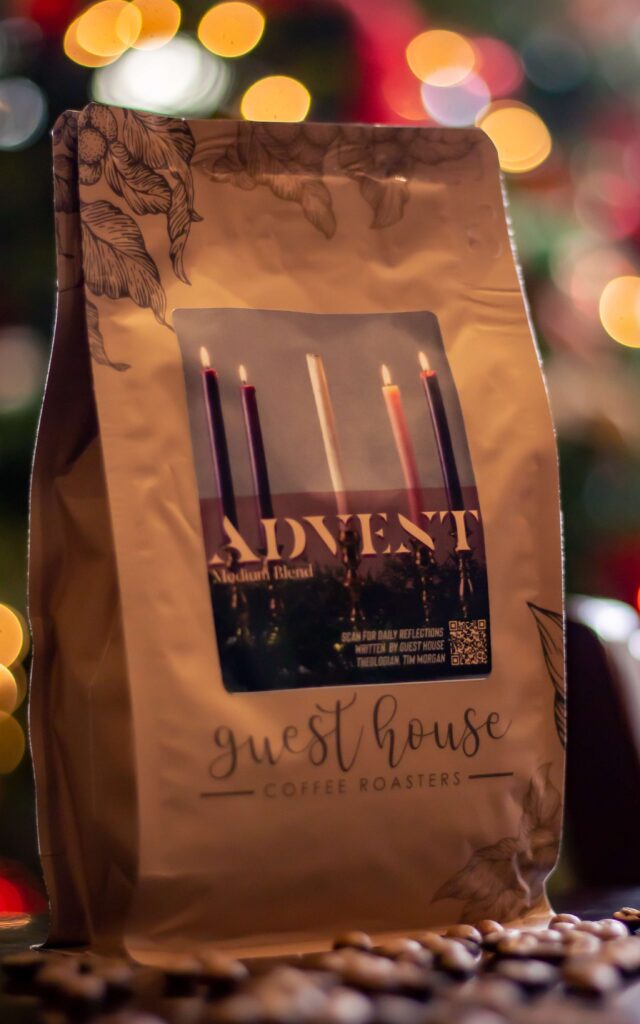
Image of “Christ of Saint John of the Cross” painted by Salvador Dalí taken from https://en.wikipedia.org/wiki/Christ_of_Saint_John_of_the_Cross
I say more: the just man justices;
Keeps grace: that keeps all his goings graces;
Acts in God’s eye what in God’s eye he is—
Christ—for Christ plays in ten thousand places,
Lovely in limbs, and lovely in eyes not his
To the Father through the features of men’s faces.
– As kingfishers catch fire, dragonflies draw flame, Gerard Manley Hopkins
“For the Lord God of hosts will make a full end, as decreed, in the midst of all the earth” (Isaiah 10:23).
The world we inhabit is non-sensical. It rages against order. It fragments with every effort at coherence. Our personal goals put us in competition with one another. There’s only so many resources to go around. We can’t share the same space in the same way. Somebody’s got to move. Either you give or I give, but someone’s got to give. The psalmist writes, “My companion stretched out his hand against his friends; he violated his covenant. His speech was smooth as butter, yet war was in his heart” (Psalm 55:20-21). In our world, friendship goes as far as shared interests; companionship lasts until the road’s too small for two people; the well of trust is filled with the water of leverage—until the well runs dry, that is. As the prophet Jeremiah writes, “They have healed the wound of my people lightly, saying, ‘Peace, peace,’ when there is no peace” (Jeremiah 8:11). There is no common good, because no good can be shared in common!
This incoherent world’s life is self-affirmation. Its every breath is self-preservation. Our times are littered with truisms which bare this not-so-hidden reality: “Don’t change for anyone,” “you do you,” “be yourself,” “do what you’re passionate about,” and so on. Our shared moral vision is characterized by allegedly unrestricted self-expression. Until, that is, my expression of self inevitably runs up against yours. This isn’t so far from the apostolic saying we find in Jude, “‘In the last time there will be scoffers, following their own ungodly passions.’ It is these who cause divisions, worldly people, devoid of the Spirit” (Jude 18). Ours is a world of “violence and strife” (Psalm 55:9), “passion, evil desire, and covetousness” (Colossians 3:5). In the coming of Christ, however, “the Lord God of hosts will make a full end, as decreed, in the midst of all the earth” (Isaiah 10:23). Jesus’ coming is the “Omega Point” of the world, it is the unity of everything which happens in judgment and salvation.
It’s fairly typical these days to perceive in the Lukan dating of John the Baptist’s ministry (Luke 3:1-2) a historical situation of both John and Jesus’ ministries within the broader, secular context (Tiberius Caesar, Pontius Pilate, Herod, etc.). This is when John the Baptist showed up. This is what was going on at the time. However, I suspect that it’s precisely the opposite that’s happening. These historical landmarks are relativized in the face of God’s word. They are situated before the coming of the Lord. The world is reconfigured by this decisive central axis (Luke 3:4-6). These varying interests, internally and externally contesting with one another, are placed under the absolute judgment of God. The war drum of the world falls under the inescapable wrath of Christ (Luke 3:7). Indeed, “men of blood and treachery shall not live out half their days” (Psalm 55:23). God will “divide their tongues” (Psalm 55:9; compare Genesis 11:5-7). As John the Baptist declares (and this to those who thought they were God’s people!), “Every tree therefore that does not bear good fruit is cut down and thrown into the fire” (Luke 3:9). When every vestige of disease is uprooted, “though your people Israel be as the sand of the sea, only a remnant of them will return” (Isaiah 10:22). This great judgment boils our world, boils God’s people unto reduction. In the end, “the remnant of Israel and the survivors of the house of Jacob will no more lean on him who struck them, but will lean on the Lord, the Holy One of Israel, in truth” (Isaiah 10:20). In all this, Jesus’ coming is the unity of the great judgment. He is the end of the world.
However, he is also the beginning of God’s world. Jude writes, “But you, beloved, building yourselves up in your most holy faith and praying in the Holy Spirit, keep yourselves in the love of God, waiting for the mercy of our Lord Jesus Christ that leads to eternal life” (Jude 21). The total renovation of our selves, our disentanglement from the world of our delusion, our de-creation and re-creation which happen in faith all happen in view of the coming Jesus. In him, “all flesh shall see the salvation of God” (Luke 3:6). As we wait, God’s people proclaim, “He redeems my soul in safety from the battle that I wage, for many are arrayed against me” (Psalm 55:18). As opposed to those “who cause divisions” (Jude 19), God’s people “have mercy on those who doubt” and “save others by snatching them out of the fire” (Jude 23). Jesus’ coming is the unity of salvation, the unity of what God’s doing in the world.
Today, I’d ask you to reflect upon the ways we try to unify our world which are fated for failure. Here, the end of our efforts is the beginning of God’s truth (Matthew 16:24-27). Christ, not our projects, is the unity of the world, because he “is able to keep you from stumbling and to present you blameless before the presence of his glory with great joy” (Jude 24). He is able to unify the world.
Further Reading: Psalm 55; Isaiah 10:20-27; Jude 17-25; Luke 3:1-9
Written by Guest House Theologian, Tim Morgan. These reflections are a complimentary addition to our Advent Blend Coffee Bags. Scan the QR code each day to read the most recent reflection.

BUY NOW
More Advent reflections can be found here.

